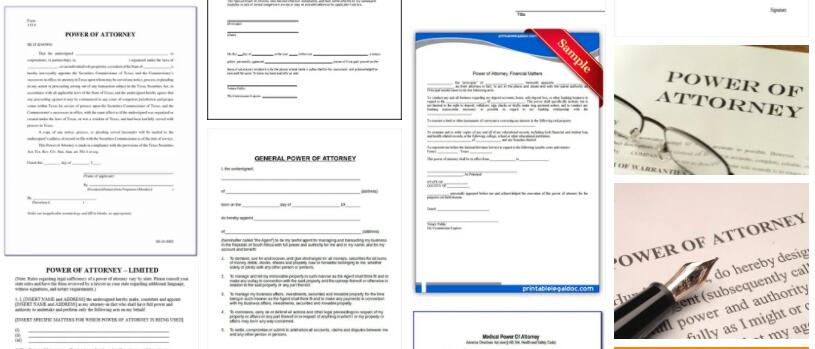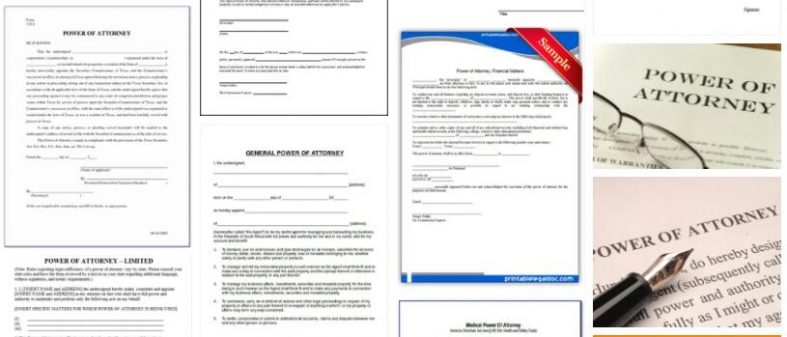Power of attorney plays a major role in day-to-day business in numerous industries. That is why we have prepared all the facts worth knowing about this topic for you here.
Definition
A power of attorney is a power of attorney limited to certain transactions that does not represent a general power of attorney . It is issued by the authorized signatory or the businessman himself and gives the authorized person clearly defined, limited power of representation.
Grant and cancellation
The power of attorney is not entered in the commercial register. It takes place either expressly or by implied action . Put simply, this means that a power of attorney is either formally granted or that such a power of attorney can be conclusively derived from day-to-day business.
It is relevant that the power of representation is recognizable for business partners so that they know with whom they can conclude which business. Disclosure is not necessary for legal reasons, but in everyday business it can be much easier and prevent misunderstandings regarding decision-making powers.
Depending on the power of attorney, it expires in different ways. A special power of attorney that is only issued for a specific transaction expires as soon as the transaction is completed. In addition, powers of attorney can be withdrawn at any time by the person represented. In addition, there are other situations that lead to the expiry of the power of attorney, for example the bankruptcy of the company.
Legal basis
The legal aspects (and limits) of the power of attorney are regulated in § 54 HGB . It says here that a person who has been granted power of attorney can in principle conclude all legal transactions for the company that are customary in the industry and typical for the company . Other activities are therefore excluded, such as representing the company in court proceedings, as this is not a typical activity in the industry.
Put simply, the authorized person can make legally binding decisions in day-to-day business , but cannot make decisions in other situations. If an authorized person exceeds their own competencies and, for example, concludes a transaction that is not customary in the industry, the business partner must accept the missing power of attorney against him if he knew or should have known that there was no corresponding power of attorney.
So if you are ever unsure in a legal transaction whether your business partner can really conclude this deal with you, even though he is not, for example, the managing director of the company, you should ask for the relevant power of attorney to be on the safe side.
Liability
As long as the authorized person adheres to the specifications, i.e. only concludes common transactions within the power of attorney, the trader himself is liable for this . The authorized person, on the other hand, is always liable if he actually behaves incorrectly – specifically if he exceeds his competencies, for example and concludes transactions that are not covered by the power of attorney.
Power of attorney types
Basically, three different types of power of attorney can be distinguished. These are general powers of attorney, specific powers of attorney and special powers of attorney.
General power of attorney
With the general power of attorney, all transactions that are typical for the respective industry may be carried out.
Artistic power of attorney
A certain type of business may be carried out here, which also represents a type of business of the trade being carried out. This power of attorney is therefore limited to a specific line of business.
Special power of attorney
In the case of special powers of attorney, only one very specific transaction may be carried out once. As soon as this transaction is completed, the power of attorney also expires.
Apart from these three categories, there are also other types of powers of attorney. The general power of attorney, the power of attorney and the sub-power of attorney are relevant here. We will now take a closer look at these three categories.
Other types of powers of attorney
General Power of Attorney
The general power of attorney is particularly extensive. In short, the authorized representative can conclude all conceivable transactions. It is accordingly important to give the decision to grant a general power of attorney – even if it is only for emergencies – to think carefully.
Such a power of attorney can also be valid after death , but anyone wishing to issue such a power of attorney should have it certified by a notary. The advantage of this approach can be to avoid inheritance disputes and at the same time to ensure that there is full capacity to act with regard to legal transactions even after death.
Procuration
In business life, the power of attorney is probably one of the most common types of power of attorney. There are again various specifications and the rules in which areas the authorized representative may work.
Single power of attorney
The authorized signatory is allowed to represent the company externally, i.e. he is allowed to do business on his own.
General power of attorney
The authorized signatory is not authorized to sign alone ; he may only appear together with other authorized signatories or managing directors.
Branch power of attorney
The authorized signatory has extensive freedom within the branch in which he works and is allowed to make appropriate decisions here.
Power of attorney and power of attorney – differences
The main difference between power of attorney and power of attorney is the freedom of action of the businessman . In the case of procuration, the law regulates exactly what the procurator is allowed to do and what is not. The businessman only has the decision about who gets the power of attorney, but he cannot change the content. With the power of attorney, on the other hand, the merchant has room for maneuver and can define more precisely which powers of attorney he grants.
The type of power of attorney and the names of the authorized signatories must also be entered in the commercial register, which is also not the case with powers of attorney .
Sub-power of attorney
A sub-power of attorney exists if a person who is already only authorized in turn instructs a third party with a power of attorney. Such a power of attorney is only valid if the original authorizing authority agrees to this sub-power of attorney. In practice, sub-powers of attorney occur, for example, with lawyers. The attorney is given a power of attorney and has another attorney represent the client. A sub-power of attorney is necessary here and can also be implemented in practice.
Write power of attorney
In principle, a power of attorney can be granted informally . It is recommended that the power of attorney is at least recorded in writing, because verbal contracts – and this is ultimately a power of attorney – can always be disadvantageous, for example when it comes later to whether or not a corresponding power of attorney has actually been granted.
In the case of complex issues, it is worth taking legal advice to issue the power of attorney. In general, it can be said that the power of attorney should be defined as clearly as possible. So try to regulate as clearly as possible who is authorized to do what, what limits there are and when and how the power of attorney expires. Clear formulations are the most important thing here so that there can be no disputes later.
You can also find practical templates for powers of attorney online, which you only have to add to your own requirements and can therefore be used quickly and flexibly.

